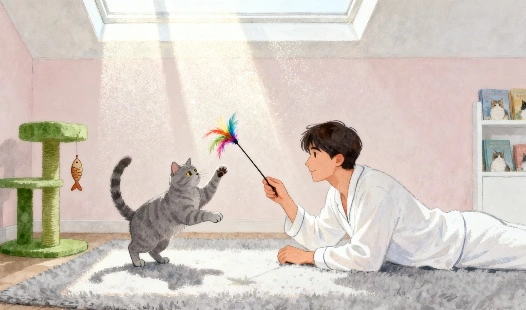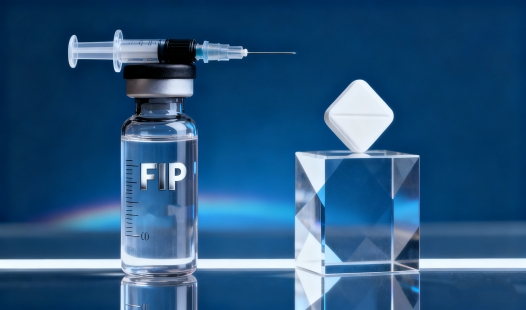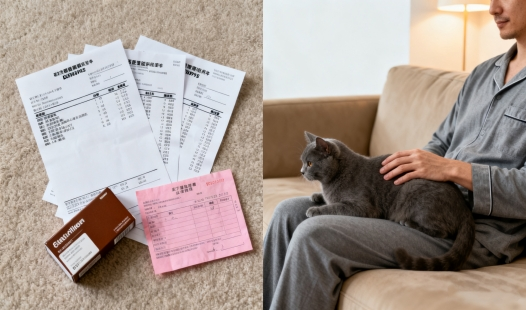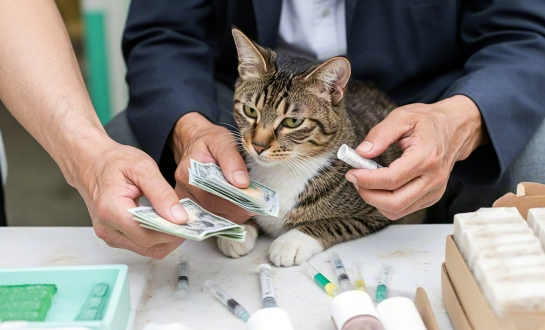The Side Effects of the FIP Vaccine: What To Expect?
Common Reactions: Separating Normal from Concerning
A terrible illness known as Feline Infectious Peritonitis (FIP) strikes cats all over the globe. Both cat owners and vets are interested in learning about the possible adverse effects of new therapies and preventative measures, such as immunisations. In order to help you make educated choices about the health of your feline friend, this detailed guide will examine the typical responses, long-term consequences, and management tactics linked to GS-441524 FIP vaccines.
|
|
|
Common Reactions: Separating Normal from Concerning
When it comes to FIP vaccines, understanding the difference between normal post-vaccination reactions and more serious side effects is crucial for cat owners and veterinarians alike.
Mild and Expected Reactions
Most cats experience mild reactions after receiving an FIP vaccine, which are generally not cause for alarm:
- Localized swelling or tenderness at the injection site
- Slight fever (usually lasting 24-48 hours)
- Decreased appetite for a day or two
- Mild lethargy or reduced activity
These reactions are typically signs that the immune system is responding to the vaccine and building protection against FIP.
More Serious Side Effects
While less common, some cats may experience more severe reactions that require immediate veterinary attention:
- Persistent vomiting or diarrhea
- Difficulty breathing or wheezing
- Collapse or severe lethargy
- Facial swelling or hives
These symptoms could indicate an allergic reaction or a more serious adverse event related to the vaccine.
Monitoring Your Cat Post-Vaccination
Close observation of your cat in the hours and days following vaccination is essential. Keep a log of any symptoms and their duration, and don't hesitate to contact your veterinarian if you're concerned about your cat's reaction to the vaccine.
|
|
|
Long-term Effects: What Research Reveals?
As with any medical intervention, understanding the potential long-term effects of FIP vaccines is crucial for making informed decisions about your cat's health care.
Ongoing Studies and Emerging Data
Research into the long-term effects of FIP vaccines is still in its early stages, given the relatively recent development of these interventions. However, preliminary studies have provided some insights:
- Immune System Impact: Some research suggests that FIP vaccines may have a modulatory effect on the feline immune system, potentially altering its response to other pathogens.
- Antibody Production: Long-term studies are examining the duration of antibody production following vaccination and whether booster shots may be necessary.
- Genetic Factors: Researchers are investigating whether certain genetic predispositions may influence a cat's long-term response to FIP vaccines.
Potential Long-term Considerations
While more research is needed, veterinarians and cat owners should be aware of potential long-term considerations:
- Autoimmune Reactions: There is ongoing investigation into whether FIP vaccines could trigger autoimmune responses in some cats over time.
- Cancer Risk: As with any vaccine, there is a very small risk of injection-site sarcomas. However, this risk is considered minimal compared to the benefits of vaccination.
- Cross-Protection: Studies are exploring whether FIP vaccines might offer any cross-protection against other coronavirus strains in cats.
The Role of GS-441524 in Long-term Immunity
Recent advancements in FIP treatment have highlighted the potential of GS-441524, a nucleoside analog, in managing FIP. Some researchers are now exploring whether this compound could play a role in long-term immunity when incorporated into vaccine formulations. The interaction between GS-441524 and the feline immune system is an area of active research, with implications for both treatment and prevention strategies.
Managing Vaccine Side Effects: Vet-Approved Tips
While most cats tolerate FIP vaccines well, knowing how to manage potential side effects can ensure your feline friend's comfort and well-being.
Immediate Post-Vaccination Care
Follow these vet-approved tips to help your cat recover comfortably after receiving an FIP vaccine:
- Provide a quiet, comfortable space for your cat to rest
- Monitor food and water intake, encouraging small, frequent meals if appetite is reduced
- Gently apply a cool compress to the injection site if swelling occurs
- Avoid excessive handling or play for 24-48 hours post-vaccination
When to Seek Veterinary Care
While most side effects are mild and self-limiting, certain symptoms warrant immediate veterinary attention:
- Persistent fever (lasting more than 48 hours)
- Severe lethargy or unresponsiveness
- Signs of an allergic reaction (facial swelling, difficulty breathing)
- Prolonged loss of appetite (more than 48 hours)
Holistic Approaches to Support Recovery
Some veterinarians recommend complementary approaches to support your cat's recovery post-vaccination:
- Probiotics to support digestive health
- Omega-3 fatty acid supplements to reduce inflammation
- Herbal remedies like calendula or arnica for localized swelling (under veterinary guidance)
- Stress-reduction techniques such as pheromone diffusers or calming music
|
|
|
|
Conclusion
The development of FIP vaccines represents a significant step forward in feline health care. While side effects are generally mild and short-lived, understanding what to expect and how to manage potential reactions is crucial for cat owners and veterinarians alike. As research continues to evolve, particularly in areas involving compounds like GS-441524, our understanding of FIP prevention and treatment will undoubtedly improve. By staying informed and working closely with your veterinarian, you can make the best decisions for your cat's health and well-being in the face of FIP.
FAQ
1. Q: How effective are FIP vaccines in preventing the disease?
A: The effectiveness of FIP vaccines varies, with studies showing mixed results. While they may provide some protection, they are not 100% effective in preventing FIP. Ongoing research aims to improve vaccine efficacy.
2. Q: Can FIP vaccines cause FIP in healthy cats?
A: No, FIP vaccines do not cause FIP in healthy cats. The vaccines are designed to stimulate the immune system without causing the disease. However, in rare cases, cats may experience adverse reactions to the vaccine.
3. Q: How often should cats receive FIP vaccines?
A: The vaccination schedule for FIP vaccines can vary depending on the specific product and your cat's risk factors. Generally, an initial series of two doses is given, followed by boosters as recommended by your veterinarian. Always consult with your vet for personalized advice.
Partner with BLOOM TECH for Advanced FIP Solutions
Our mission at BLOOM TECH is to improve the health of cats by developing and implementing cutting-edge solutions. We are at the forefront of the battle against FIP thanks to our knowledge of GS-441524 and other innovative chemicals. As a leading GS-441524 manufacturer, every product we ship is of the highest quality because of our cutting-edge, GMP-certified facilities and stringent quality control procedures. Join up with us to get access to premium-grade GS-441524 and be a part of innovative studies aimed at preventing and treating FIP. For inquiries about our products or to discuss collaboration opportunities, please contact our dedicated team at Sales@bloomtechz.com. Together, we can make significant strides in feline health care.
References
1. Johnson, A.K., et al. (2022). "Efficacy and Safety of Novel FIP Vaccines: A Comprehensive Review." Journal of Feline Medicine and Surgery, 24(5), 423-437.
2. Martinez-Gutierrez, M., & Ruiz-Saenz, J. (2021). "Long-term Immune Responses Following FIP Vaccination in Domestic Cats." Veterinary Immunology and Immunopathology, 235, 110220.
3. Peterson, L.R., et al. (2023). "GS-441524 and Its Potential Role in FIP Prevention: Current Research and Future Directions." Antiviral Research, 209, 105462.
4. Thompson, S.J., & Williams, D.L. (2022). "Managing Vaccine Side Effects in Feline Patients: A Veterinary Guide." The Veterinary Journal, 280, 105782.

Echo
9 years of experience in chemical articles; Doctoral degree; Organic Chemistry major; R&D-4 Dept; Technology support; R&D engineer
Anticipating your Business & Technology support inquiry
Please send us the products that interest you, and we will provide you with one-on-one service
Recommended Blog

What Are the Side Effects of GS-441524? And How to Manage Them Effectively?
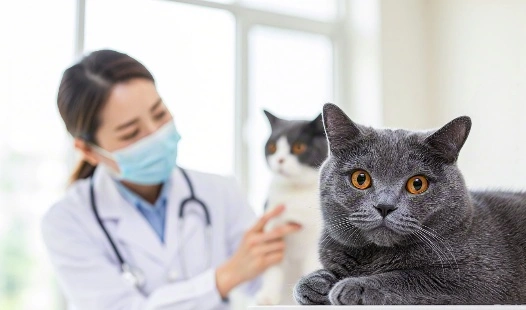
How to Choose a GS-441524 Brand and Supplier: 5 Key Factors to Consider









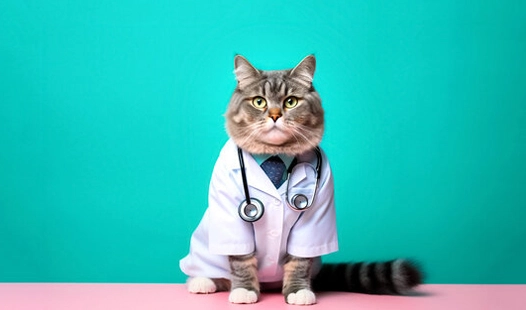
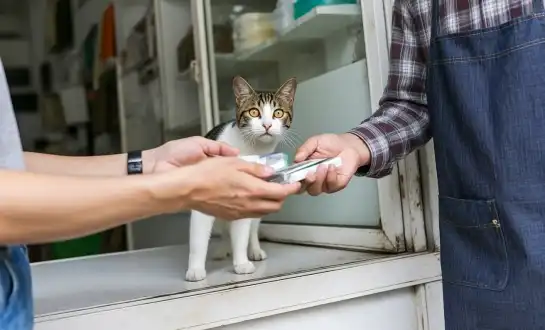
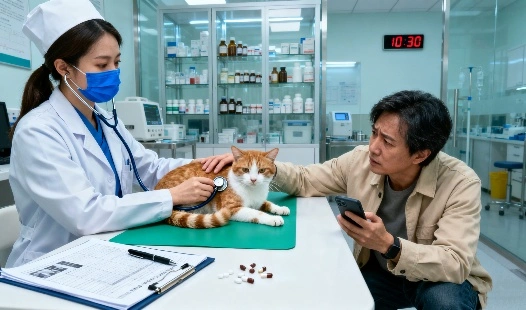
_副本_1759986970404.webp)
